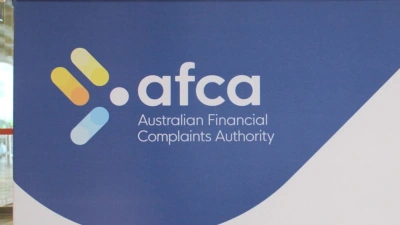'Are we happy being lied to?': Spotlighting volatility levels



Advisers need to ask themselves, “Are we happy being lied to?,” when it comes to how much volatility exists in private markets.
Appearing on an IMAP webinar, Daniel Stojanovski, chief investment officer at Centrepoint Alliance, discussed how market volatility is unlikely to abate in the short-term and it is not always clear how accurate it is in an illiquid fund.
Based on his conversations with financial advisers, Stojanovski said volatility isn’t always clearly marked for a private asset fund.
“What we’ve heard from advisers, when you’re looking at less liquid types of investment such as alternatives, private equity, private debt, it’s very important to consider this from a portfolio construction perspective.
“It looks like these funds are dampening volatility. It’s a straight line-up from A to B, and the viewpoint I’ve always had is, ‘Are we happy to be lied to?’. Do these assets have volatility? Yes, they do, and you should be mapping that in your portfolio construction. Volatility exists whether it’s public or private markets.
“Depending on when that illiquidity is marked, that’s where you get your straight line from and that needs to be kept in the back of your mind.”
Chad Hitzeman, head of institutional sales at Global X, added the firm had experienced investors who were concerned about the risk of unlisted assets due to the lack of mark-to-market volatility.
“We have had clients where their risk team was a bit concerned because they couldn’t put their finger on the degree of the unlisted part of the portfolio’s risk level because it wasn’t mark-to-market volatility.
“It can be good to have alternatives that are mark-to-market. It’s a double-edged sword because you may have a higher degree of volatility but at least you have a reading and a measurement of it whereas unlisted exposure might be less straightforward.”
Stojanovski then asked the webinar commentators whether there were certain types of alternative investments which dampened or exacerbated volatility.
Michael McCorry, chief investment officer at BlackRock, said a market neutral hedge fund dampened volatility, thanks to the neutrality of the underlying investments, and demonstrated lower risk while delivering good returns.
Looking at thematic ETFs, Hugh Lam, investment strategist at Betashares, and Hitzeman, both agreed early-stage thematic ETFs such as hydrogen may be more volatile than those at a later stage. On the other hand, other thematic ETFs could offer defensive growth, so thematics should be considered on an individual basis.
Stojanovski added: “From our experience with advisers, it’s very important to set out why are you using a thematic, what is the process of keeping it or not, that way you are constantly reviewing how they work in portfolios.”
Recommended for you
ASIC’s court case with Interprac is causing advisers to explore the possibility of self-licensing, according to My Dealer Services, as they observe the reputational damage it can bring to a practice.
AZ NGA has entered a strategic partnership with a Sydney advice firm with $600 million in assets under advice to support its succession plans and future growth.
With complaints on the rise and an expanded jurisdiction, the Australian Financial Complaints Authority is on the hunt for four C-suite roles, three of which are newly-created positions.
Ahead of the 1 January 2026 education deadline for advisers, ASIC has issued its ‘final warning’ to the industry, reporting that more than 2,300 relevant providers could be on their way out.











